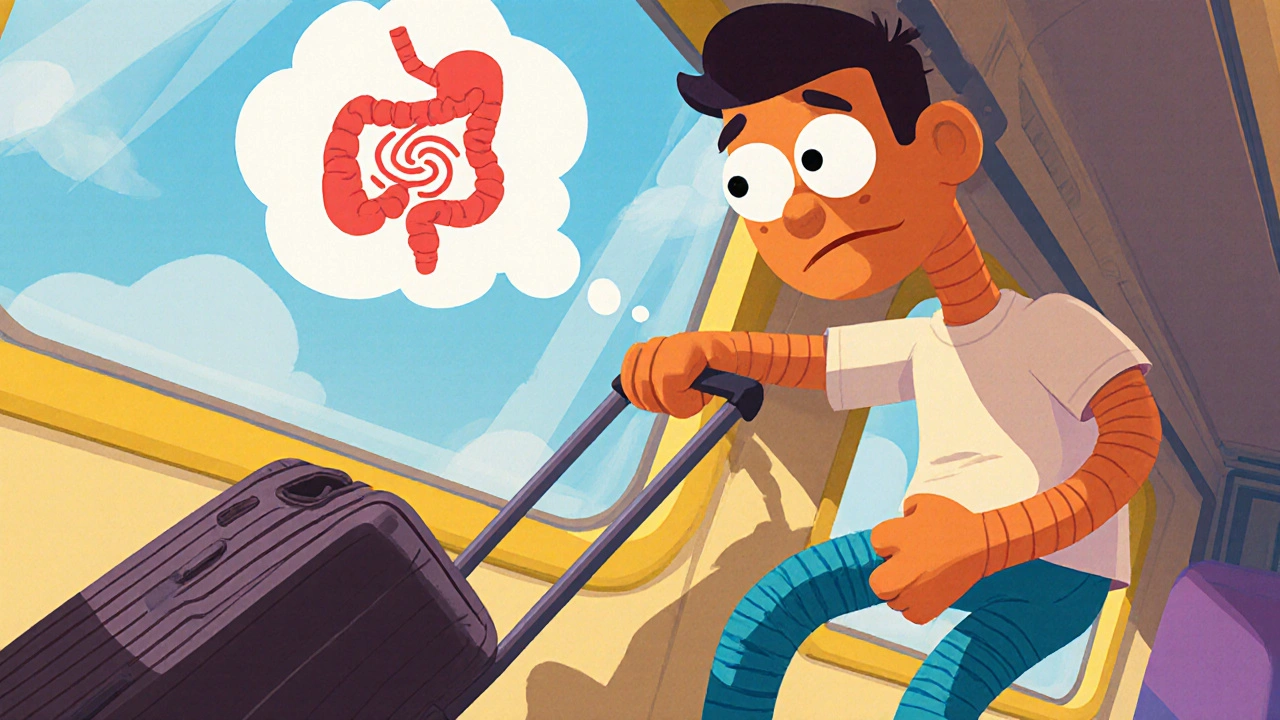Acute Diarrhea: Causes, Treatments, and What You Need to Know
When you suddenly have loose, watery stools that last a few days, you’re likely dealing with acute diarrhea, a short-term digestive issue often caused by infection, food poisoning, or medication side effects. It’s not just uncomfortable—it can be dangerous if you lose too much fluid and electrolytes. Unlike chronic diarrhea that lasts weeks, acute diarrhea usually clears up on its own, but knowing how to manage it makes all the difference.
Most cases come from viruses like norovirus or rotavirus, bacteria such as E. coli or Salmonella, or parasites from contaminated food or water. Travelers often get it from drinking tap water abroad. But it’s not always about germs—antibiotics, laxatives, or even too much caffeine can trigger it. The real danger isn’t the diarrhea itself, but dehydration, a condition where your body loses more fluids than it takes in, leading to dizziness, dry mouth, low urine output, and even confusion. Kids and older adults are at highest risk, and they need extra attention.
Thankfully, you don’t always need pills. The first-line treatment is simple: oral rehydration, a solution of water, salt, and sugar that replaces lost fluids and minerals. You can buy pre-made packets or make your own with clean water, a pinch of salt, and a spoon of sugar. It’s cheaper, safer, and more effective than most over-the-counter meds. For adults, loperamide, a common anti-diarrheal that slows gut movement, can help reduce frequency—but only if you don’t have a fever or bloody stool. Never give it to kids without a doctor’s advice.
Another overlooked but powerful tool is zinc supplementation, a mineral shown in studies to shorten diarrhea duration and reduce future episodes, especially in children. The WHO recommends it in developing countries, and it’s gaining traction elsewhere. Pair it with a bland diet—bananas, rice, toast, applesauce—and avoid dairy, fatty foods, and sugar until things settle.
When should you see a doctor? If diarrhea lasts more than 48 hours, you’re vomiting nonstop, have a high fever, notice blood in your stool, or feel lightheaded and weak, don’t wait. These aren’t normal signs. Antibiotics aren’t always the answer—most cases are viral and will pass. But if it’s bacterial, delaying treatment can lead to complications.
What you’ll find in the posts below isn’t just theory—it’s real-world advice from people who’ve been there. You’ll see how certain medications work, what to avoid when you’re sick, and how simple changes in diet and hydration can turn a bad day into a recovery. No fluff. No guesswork. Just what actually helps.

Managing Acute Diarrhea on Long-Distance Trips: A Practical Guide
Caspian Mortensen Oct, 15 2025 13Learn fast, practical ways to handle acute diarrhea on long trips-from immediate hydration and medication to packing tips, food safety, and when to seek medical help.
More Detail